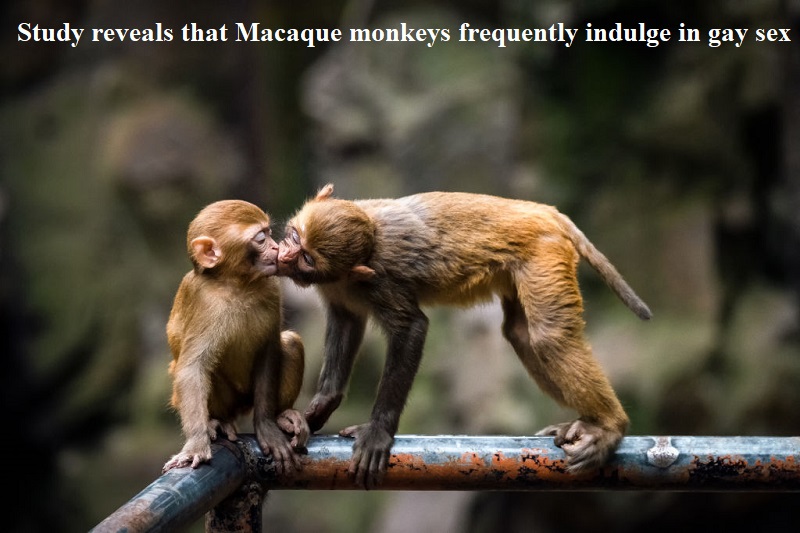
Recent research conducted by scientists at Imperial College London suggests that bisexual behavior is prevalent among male monkeys and may have advantageous effects for mammals.
During a period of three years, the researchers closely observed a diverse group of macaques and noticed that homosexual or same-sex sexual (SSB) behavior has evolved and may be a prominent aspect of primate reproduction.
The team from Imperial College London challenges existing theories that posit SSB as a rare behavior limited to non-human animals or a result of unusual environmental conditions. Furthermore, the researchers found that males who engage in SSB tend to have more offspring.
Jackson Clive, affiliated with the Georgina Mace Centre for the Living Planet at Imperial and an author of the study, remarked, “We found most males were behaviorally bisexual, and that variation in same-sex activity was heritable.” This suggests that the behavior may have an evolutionary basis. Additionally, the researchers observed that males who engaged in mounting behaviors were more likely to support each other in conflicts, indicating potential social benefits associated with same-sex sexual activity.
Clive expressed hope that the research findings will inspire further discoveries in this field and promote understanding of the prevalence and significance of same-sex sexual behaviors in animals.
Professor Vincent Savolainen, the lead researcher and Director of the Georgina Mace Centre for the Living Planet at Imperial, emphasized the importance of dispelling the belief that same-sex behavior is “unnatural.” He pointed out that same-sex behavior is widespread among non-human animals and their mission is to advance scientific knowledge about such behavior, including exploring the benefits it brings to nature and animal societies. The study conducted on macaques revealed that more than two-thirds of the observed individuals engaged in same-sex behavior, which served to strengthen social bonds within the community.
The researchers studied approximately 236 freely-living male rhesus macaques within a colony of 1,700 on Cayo Santiago, a tropical island in Puerto Rico. In addition to observing their behavior, the team conducted genetic analyses and had access to pedigree records dating back to 1956, which provided detailed parentage information for each individual.

Post Your Comments